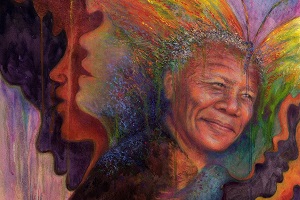Dolce far niente

Het onlangs geopende Mandelahuisje in Amsterdam
Letting Go
To let go doesn’t mean to stop caring: it means I can’t do it for someone else.
To let go is not to cut myself off;
it is the realization that I can’t control another.
To let go is not to enable,
but to allow learning from natural consequences. To let go is to admit powerlessness,
which means the outcome is not in my hands.
To let go is not to try to change or blame another;
I can only change myself.
To let go is not to care for, but to care about.
To let go is not to fix, but to be supportive.
To let go is not to judge,
but to allow another to be a human being.
To let go is not to be in the middle arranging outcomes, but to allow others to effect their own outcomes.
To let go is not to be protective;
it is to permit another to face reality.
To let go is not to deny, but to accept.
To let go is not to nag, scold, or argue,
but to search out my own shortcomings and to correct them
To let go is not to adjust everything to my desires,
but to take each day as it comes and to cherish the moment.
To let go is not to criticize and regulate anyone, but to try to become what I dream I can be. To let go is not to regret the past,
but to grow and live for the future.
To let go is to fear less and love more.

Nelson Mandela (18 juli 1918 – 5 december 2013)
Portret door Kim Novak

